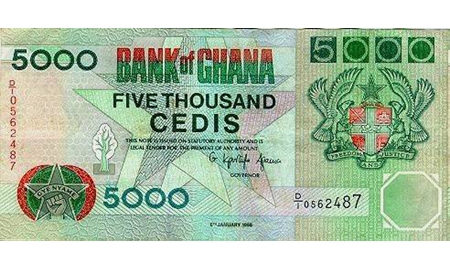
There is much to be positive about Ghana’s economy, having experienced impressive growth and stability in recent years while rising to a lower-middle income status. Major achievements include GDP growth rates of 4, 7.7 and 13.6 per cent in 2009, 2010 and 2011 respectively, with around 8-9 per cent forecast by the IMF for this year. Its predicted average GDP growth of 7.3 per cent per year between 2012 and 2016 also makes it West Africa’s most dynamic economy.
The government has reined in inflation, from 20.74 per cent in June 2009 to 8.6 per cent at the end of last year – Ghana’s lowest rate since 1970 and below the government’s 9 per cent target –and is projected to remain within 6.7-10.7 per cent. The country’s 2011 budget deficit was also lower than expected, at 4.3 per cent of GDP against a targeted 5.1 per cent, as revenue and grants totalling GH¢12.9bn exceeded forecasts, according to the Ministry of Finance and Economic Planning.
“For the past five years, the central bank has been instrumental in engineering stability in the economy.” ---------------------------------- We want to establish a stable framework from which longterm growth can be achieved.” |
Total banking sector assets stood at GH¢22.6bn in 2011, up by 26.8 per cent year-on-year at the end of 2011. The increase was driven by deposits, which the central bank says “grew by 35.3 per cent on a year-on-year basis to GH¢16bn in 2011.” The industry’s capital adequacy ratio (CAR) stood at 17.4 per cent in 2011, well above the statutory level of 10 per cent.
“For the past five years, the central bank has been instrumental in engineering stability in the economy,” says Millison K. Narh, Bank of Ghana’s Second Deputy Governor. “For example, each year the government can withdraw no more than 10 per cent of the projected revenue for that year. This limits the amount the government can borrow not only from the central bank but from the entire system.”
Driven by strong GDP growth, Ghana is likely to be the most dynamic of the large emerging African banking markets until 2015, according to Roland Berger Strategy Consultants, who estimate that the total bank market revenue will more than triple between 2010 and 2015, from $1.3 billion to $4.2 billion. A survey of Ghana’s banking sector carried out by the analysts found that of Ghana’s 25 commercial banks, 12 are predominantly locally owned and “may be considered as acquisition targets.”
The Economist Intelligence Unit expects that as the economy grows and more business opportunities arise, commercial banks should increase lending to the private sector. Ghana Commercial Bank (GCB) is the nation’s largest indigenous bank, with 13 per cent of the industry’s operating assets. Established in 1953 mainly for Ghanaian entrepreneurs, GCB is now one of the most respected financial institutions in the country.
In November 2011, The Banker awarded GCB “Bank of the Year in Ghana” in recognition of its strong management skills, sound business model and prudent risk approach. It also won the “Best Bank Country Category – Ghana 2011” from Global Finance in the US, who cited GCB as the “banking partner of choice for those wishing to invest or set up operations in Ghana and West Africa”. It also commended GCB for funding investments in the most capital-intensive sectors – oil and gas, mining, construction, telecoms, shipping and agriculture – while maintaining modern transactional services. Managing Director of GCB Simon Dornoo says, “It is pretty obvious that we have the biggest balance sheet and that is the strength we need to leverage, and we are only doing this to make banking easier for our customers.”
Ghana’s retail banking sector represents a huge untapped market, with an estimated 66 per cent of adults unbanked. For many Ghanaians new to banking, local understanding is the overriding factor when choosing an institution. Ghana’s homegrown uniBank launched in 2001 to serve personal banking customers and the small and medium enterprise (SME) market. “As an indigenous bank, our focus is on building the resources and capacities of Ghanaians. We want to establish a stable framework from which long-term growth can be achieved,” says Felix Nyarko-Pong, CEO of uniBank.
Although SMEs will remain its main focus, uniBank also plans to build its competence in other areas. “Regarding oil and gas, we are looking at helping local indigenous companies in the value chain to offer services. We want to help SMEs build capacity and create linkage industries,” he says. “SME development is crucial because it will flow into the real economy.”
In addition, it has also carved itself a niche in advisory services. “We have time for our clientele, and we listen to and grow with them. This enables us to have very low NPLs (non-performing loans) and we will continue to work on this,” says Mr Myarko-Pong.
uniBank has established a microfinance institution, called uniCredit, with the largely unbanked population in mind. “We are developing financial products that will appeal to the informal sector. We are looking for partners to come on board with the same psyche and focus,” says the CEO.
0 COMMENTS